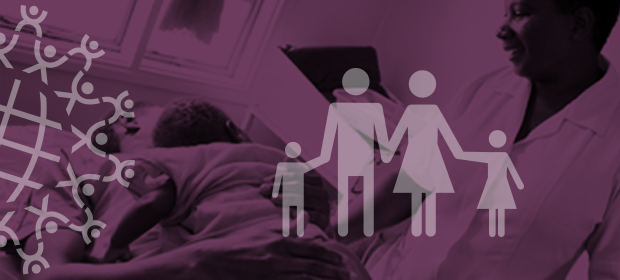Where We Work
See our interactive map


For the past ten years, CS4FP has been working with strong, high-functioning civil society coalitions, young people, and religious and traditional leaders in Benin, Burkina Faso, Côte d'Ivoire, Guinea, Mali, Mauritania, Niger, Senegal, and Togo (Ouagadougou Partnership countries) to collaborate with and advocate to governments to implement their national family planning costed implementation plans (CIPs). The IntraHealth team established and supported national coalitions in all nine Ouagadougou Partnership (OP) countries to unify and strengthen civil society and hold governments accountable for their family planning commitments.
And the project helped build a stronger, more coordinated civil society, which achieved several significant policy changes, including:
CS4FP organized workshops for CSOs on good governance, advocacy, resource mobilization, and fundraising. The project also secured commitments from CSOs to join or create family planning coalitions and provided small-scale grants for family planning advocacy. As part of this effort, CSO coalitions engaged young people and religious and traditional leaders to help encourage family planning in their communities. They developed a governance charter, mobilized resources, and developed key strategies for the future.
And they mobilized resources to stay sustainable—for each $1 provided by CS4FP, the coalitions raised an additional $5 to support their family planning activities.
CS4FP worked as advocates with youth ambassador networks in every country to ensure that national family planning plans and policies reflected the needs and wants of young people.
To do this, the project trained young people on family planning, social media, strategic planning for community mobilization, and resource mobilization to encourage sustainability. Youth networks were active on social media and digital messaging platforms and wrote blog posts on the CS4FP website to share their personal experiences with their peers.
Many adult networks implemented campaigns in their communities to raise awareness and share information about youth-focused family planning activities. As part of the information-sharing effort, youth participated in intergenerational dialogues in their countries and built a regional network linked to the CSO coalitions. Young leaders also received small-scale grants for family planning promotion.
The project also worked with religious and traditional leaders in all nine Ouagadougou Partnership countries to encourage family planning. Organized at regional levels through the Alliance des leaders Religieux et Traditionnels pour la Santé et le Développement en Afrique de l’Ouest (Alliance of Religious and Traditional Leaders for the Health and Development of West Africa) with CS4FP support, religious and traditional leaders in the nine Ouagadougou Partnership countries and Chad worked together to develop their family planning strategic plan for the next three years.
They participated in family planning workshops to discuss religious texts and the intersection of religion and family planning, and to dispel myths and misinformation about reproductive health. They then developed booklets with key family planning supportive messages and received small grants for advocacy and community mobilization.
CS4FP’s support to civil society coalitions, youth ambassadors, and religious and traditional leaders helped these groups to become well-versed in family planning advocacy and resource mobilization and allowed them to take more ownership to ensure their autonomy and continued success.
These actions helped the West Africa region exceed their FP2020 goals, the only region to do so. Now, there is greater unity and better collaboration among civil society organizations, youth, religious leaders, and Ministries of Health, which has led to more and sustainable family planning and reproductive health activities in francophone West Africa.
CS4FP was funded by the William and Flora Hewlett Foundation and the Dutch Government through the Embassy in Benin.



